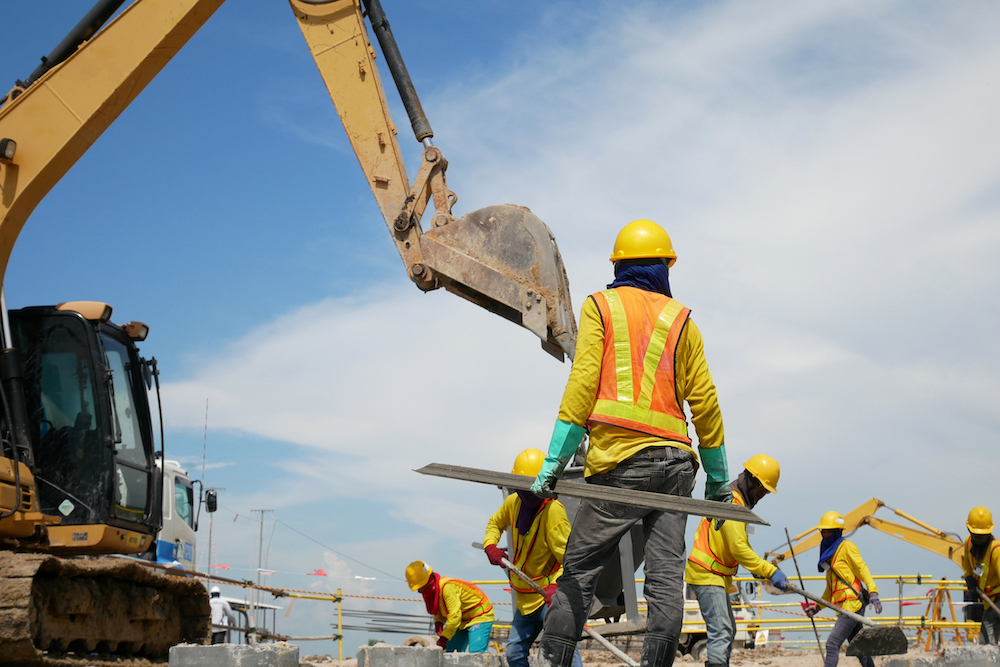
Construction contracts, and contracts, in general, contain all sorts of problem clauses and landmines shrouded in legal jargon. Signing a contract without understanding how certain clauses can affect your rights can be a dangerous proposition. One clause subcontractors and suppliers, and the construction industry as a whole should be particularly aware of is a pay-if-paid clause. Many states do not allow these clauses to be enforceable. However, Georgia pay-if-paid clauses are enforceable. Let’s take a look at how these work.
What is a pay-if-paid provision?
A pay-if-paid clause is a provision which states that a contractor is obligated to pay its subcontractors if and when the property owner pays them. So in essence, if the owner never pays the contractor, they aren’t required to pay their subs or suppliers until the owner pays them. This operates as shifting the risk of non-payment down the payment chain; also known as contingent payment clauses.
Many states declare these types of clauses as unenforceable because they go against public policy. The reasoning behind this is that mechanics lien rights arise only when payment is due; and the right to file a lien is a statutory right. If the owner never pays, then the sub will never have the ability to file a lien.
For a deep dive on these clauses:
Enforceability of Georgia Pay-if-Paid clauses
Georgia courts have repeatedly held that pay-if-paid clauses are enforceable as establishing a condition precedent to payment. In order to properly establish a condition precedent to payment, the pay-if-paid clause must contain an express condition clearly showing the intention of the parties.
There is no “required magic language” that will make such clauses enforceable. Each contract is evaluated on a case by case basis to determine whether the language is clear and unambiguous to establish a condition precedent. These are typically created by using terms such as “on the condition that,” “if,” and “provided,” or by explicit statements that certain events are to be construed as conditions precedent.
Clauses upheld as enforceable
Here are some examples of clauses that the Georgia courts have determined clearly establishes a condition precedent to payment.
- “…no payment shall be due Subcontractor for such changed or extra work until Contractor has received payment from the Owner for said changed or extra work performed by Subcontractor”
- “Final payment shall be made within 30 days after the completion of the work included in this sub-contract, written acceptance by the Architect and full payment by the owner.”
- “The retained percentage and/or final progress payment shall be paid after… the Contractor has been paid by the Owner for the Work set forth in this Subcontract.”
Download a free, Construction Contract template
Pay-if-paid clauses are strictly enforced
If the clause is deemed to sufficiently establish a condition precedent to payment, then the terms will be strictly enforced. The court in US ex rel McKenney’s Inc. v. Gov’t Tech. stated that a condition precedent to payment, including when the subcontractor receives money only when the prime is paid, is not simply a timing mechanism, but bars recovery by the sub until the condition is met.
Georgia subcontractors should be particularly cautious when presented with a contract containing a pay-if-paid clause. Most cases that have been brought to court in Georgia have been decided in favor of the GC. Not only that, but even waiving such a clause is difficult to prove and enforce. Take for example the situation that arose in Vratsinas Construction Co. v. Triad Drywall.
In that case, it was clearly established early on in the project that there was an enforceable pay-if-paid clause in the subcontract. At some point during construction, the GC had expressed concern about the owner’s ability to pay. Not only did the GC assure the sub not to worry and that he will be paid out of his own pocket, he actually ended up doing so for the next progress payment. However, when the final payment rolled around, the GC used the clause as a defense to payment. What’s the lesson here? Even if the GC agrees to pay you despite non-owner payment, get it in writing!
Bottom line
Whenever signing a new contract, subs should read over their contract carefully. If there is a pay-if-paid clause contained within, that might be cause for concern. As the existence of the clause can seriously impact your ability to get paid what you’ve earned. Either try to negotiate the clause out of the contract, or possibly research the owner’s financial condition or payment history on similar projects.
Additional resources
- What Does “Pay When Paid” Mean?
- Construction Contracts: Beware of Certain Clauses
- Construction Documents | A Guide to Common Contract Parts

